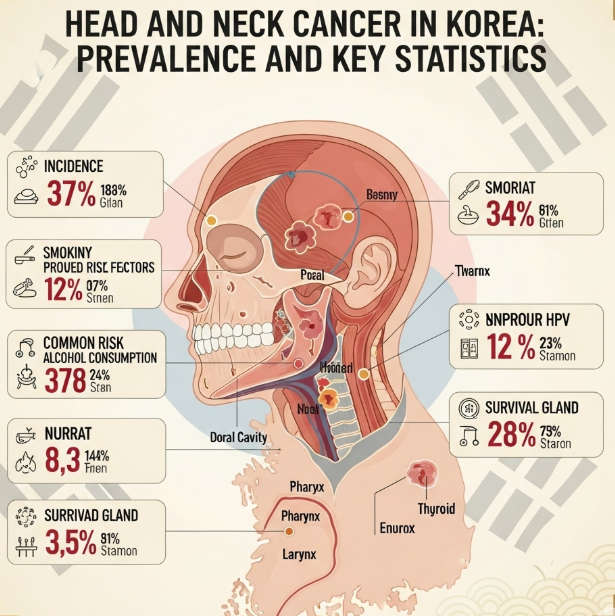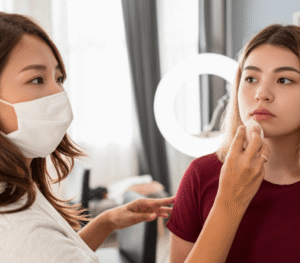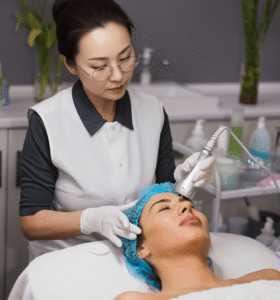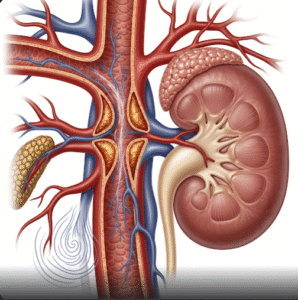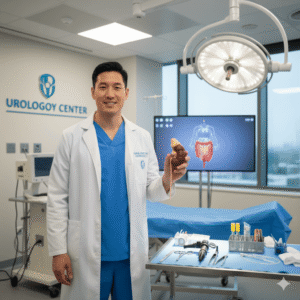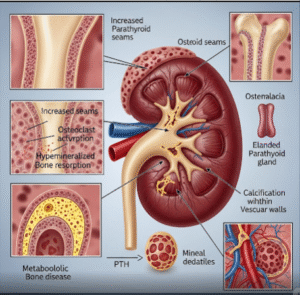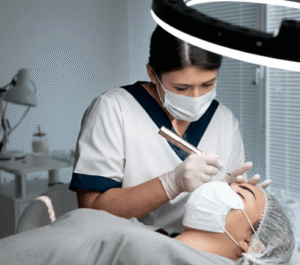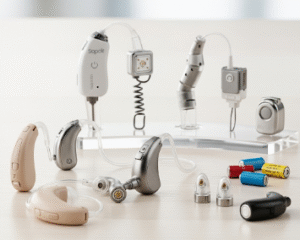Overview
Head and neck cancer encompasses malignant tumors that develop in the mouth, throat, larynx, sinuses, or salivary glands. These cancers can significantly affect speech, swallowing, breathing, and appearance.
In Korea, head and neck cancers are managed in specialized oncology centers, offering early detection, advanced surgery, radiation therapy, and targeted treatments. Korean hospitals emphasize a multidisciplinary approach to maximize survival and preserve function.
What is Head and Neck Cancer?
Head and neck cancer refers to a group of cancers arising from the mucosal surfaces or glands of the head and neck region. The most common type is squamous cell carcinoma, affecting adults over 50, with a higher prevalence in men. Risk factors include tobacco use, alcohol consumption, HPV infection, and poor oral hygiene.
Symptoms
- Persistent sore throat or hoarseness
- Lump or mass in the neck
- Difficulty swallowing or chewing
- Unexplained oral bleeding or ulcers
- Ear pain or ringing
- Weight loss
- Facial swelling or numbness
Causes
- Tobacco and alcohol use
- Chronic irritation of oral or pharyngeal tissues
- Human papillomavirus (HPV) infection
- Poor oral hygiene and dental health
- Genetic susceptibility
Risk Factors
- Age over 50
- Male gender
- Smoking and heavy alcohol consumption
- HPV infection
- Occupational exposure to chemicals or dust
- Family history of head and neck cancers
Complications
- Metastasis to lymph nodes or other organs
- Difficulty eating, speaking, or breathing
- Facial deformities after surgical treatment
- Recurrence of cancer
- Emotional and psychological challenges
Prevention
- Avoid tobacco and limit alcohol consumption
- Maintain good oral hygiene and regular dental check-ups
- HPV vaccination
- Early evaluation of persistent oral or throat lesions
- Protective measures for occupational exposure
Treatment Options in Korea
Diagnosis
- Physical examination of oral cavity, throat, and neck
- Imaging: CT, MRI, or PET scans for staging
- Biopsy for histological confirmation
- Blood tests for general health assessment
Medical Treatments
- Radiation therapy for localized tumors
- Chemotherapy for advanced or metastatic disease
- Targeted therapy and immunotherapy in selected cases
Surgical or Advanced Therapies
- Surgical excision of tumors with clear margins
- Neck dissection for lymph node involvement
- Reconstructive surgery using grafts or flaps to restore function and appearance
- Minimally invasive and robotic-assisted surgeries are available in Korea
Rehabilitation and Support
- Speech and swallowing therapy
- Nutritional support
- Psychological counseling for coping with cancer and treatment effects
- Regular follow-up to monitor for recurrence

